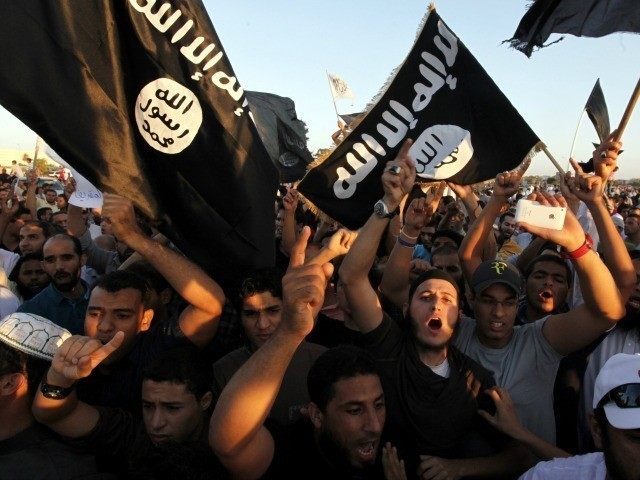The Islamic State’s recruiting efforts have long been a source of grave concern to Western governments, but the situation in Europe is growing steadily worse according to French Prime Minister Manuel Valls, who warned on Sunday that up to ten thousand Europeans could be fighting the jihad in Iraq and Syria by the end of the year.
“There are 3,000 Europeans in Iraq and Syria today. When you do a projection for the months to come, there could be 5,000 before summer and 10,000 before the end of the year,” said Valls. “Do you realize the threat that this represents?”
He went on to observe that nearly 90 French citizens have already “died out there with a weapon in their hand, fighting against our own values” in service to jihadist groups, particularly the Islamic State. France and Belgium have lost the largest number of citizens to ISIS, prompting the French government to crack down with passport seizures and travel bans, using a law passed last November that allows them to place renewable six-month holds on the passports of citizens suspected of traveling to Syria and Iraq for the purpose of joining the Islamic State. Britain and Denmark recently adopted similar measures.
The New York Times reports that while the growing threat of Islamist radicalization, and the Charlie Hebdo massacre, brought widespread public acceptance of these anti-extremism measures, there are civil-libertarian challenges brewing, with lawyer Agnes Tricoire of the French League of Human Rights declaring the travel bans “a violation of a fundamental right, which is the liberty of free movement.” She also wondered ominously about what extremists might do to France if they are not allowed to jet off and join the jihad. Others worry about what jihadis with military training and a whetted appetite for violence might do if they are allowed to jet back home after they are finished serving ISIS or al-Qaeda.
Canada is also worried about citizens journeying to the Middle East for service in the jihad, with Royal Canadian Mounted Police Commissioner Bob Paulson mentioning ninety subjects either planning to make the journey, or already returning to Canada with combat experience. “I take briefings every week from my commanding officers across the country,” said Paulson. “In Aberta, we’re seeing a steady increase; in Ontario, increasing; in Montreal, increasing; so it’s a steady rise.”
Canadian authorities have the same conflicting fears as the French: prevent jihad recruits from leaving, and they might unleash chaos on Canadian soil, but allow them to make a pilgrimage to ISIS and return, and they could use their training and experience to become highly effective terrorist operatives. All of these Western governments, including the United States, have similar problems resolving the need to balance protection against terrorism with citizens’ rights to travel, privacy, and free association.
These are, perhaps, problems that earlier generations would have resolved with fewer qualms, reasoning that citizens who swear allegiance to hostile foreign powers–especially those who operate in defiance of every single international standard for political legitimacy, lawful conflict, and human rights–stop being citizens. For better or worse, such offenses are treated with more delicacy now, especially when they’re still in the planning stages. The issue is complicated by the habit of ISIS recruits to make their travel plans for Turkey, a legitimate tourist destination and NATO member; the Islamic State’s battlegrounds in Syria and Iraq aren’t the final destination on their itineraries.
Letting them go and preventing them from ever returning would reduce the domestic terror threat posed by veteran jihadists, but there’s the problem of expatriate ISIS members becoming highly effective recruiters, idolized by young people back home. As long as the Islamic State exists–and especially for as long as it can win battles, seize more territory, open franchises in other countries, and present itself as a successful conqueror–it poses an ideological threat, in a way al-Qaeda and its other terrorist forefathers never managed. There have always been concerns about radicalization, but what’s happening now in Europe and North America is unprecedented, and getting worse.

COMMENTS
Please let us know if you're having issues with commenting.